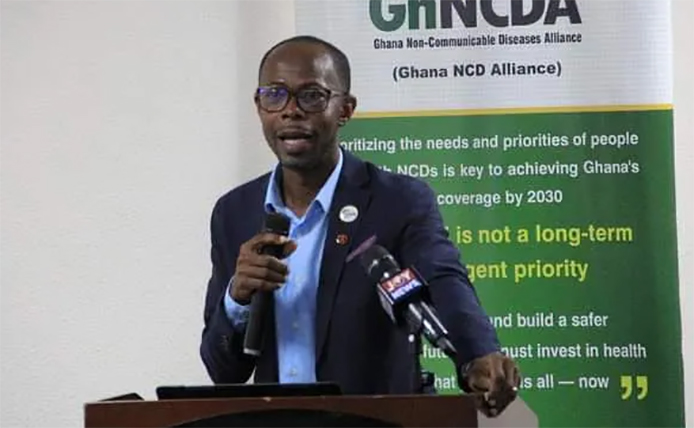
The Ghana NCD Alliance, a coalition of civil society organisations and individuals living with non-communicable diseases, has warmly welcomed the recent passage of the Ghana Medical Trust Fund, popularly known as ‘MahamaCares’.
In a statement issued today, August 5, the alliance commended the government’s “bold and timely intervention” but also raised critical concerns, calling for a comprehensive framework to limit the involvement of industries whose products contribute to NCDs.
The Ghana Medical Trust Fund Bill was passed by Parliament on Tuesday, July 22, 2025, and subsequently assented into law by President John Dramani Mahama.
The President’s personal donation of his six months’ salary as seed funding was hailed by the alliance as a “testament of the government’s commitment” and a “profound understanding of the urgency of the NCDs crisis”.
“We receive this bold and timely intervention with profound gratitude and renewed hope,” the statement read.
“Transforming from a party campaign manifesto promise to its official launch and the successful passage of the Trust Fund in Parliament… is a testament of the government commitment to reducing the catastrophic out-of-pocket expenses people living with NCDs and families face daily just to access treatment and care.”
The alliance noted that for too long, Ghanaians, especially the poor and vulnerable, have struggled with inadequate access to essential NCD services and limited financial protection.
The Ghana NCD Alliance also praised the appointment of Madam Obuobia Darko-Opoku as the administrator of the Fund, describing her role as a “pivotal responsibility that offers an opportunity to build a robust and sustainable mechanism for NCD care in Ghana.”
They urged her to adopt a multisectoral approach, collaborating with various ministries, agencies, civil society groups, and professional associations.
While expressing gratitude, the alliance raised two critical concerns regarding the new law:
- Limited Stakeholder Engagement: The alliance noted with concern the “limited stakeholder engagement” that preceded the fund’s passage. Citing the World Health Organization’s (WHO) framework, they stressed that “it is essential that patients, caregivers, civil society, and professional bodies are meaningfully engaged in every step, from policy formulation through to implementation and monitoring.”
- Risk of Industry Infiltration: The second and most significant concern was the open-ended provision in Clause 3 of the Bill for funding sources. The alliance warned that without “explicit safeguards, the Fund risks infiltration by industries whose products—such as tobacco, alcohol, and sugar-sweetened beverages—are known contributors to NCDs.”
The alliance stressed that allowing contributions from these “unhealthy commodity industries” would “create dangerous public health contradictions, legitimise these industries’ role in national health policy, undermine excise tax policies, and could also erode public trust in the Fund.”
Recommendations for a Sustainable Fund:
To ensure the fund’s sustainability and independence, the Ghana NCD Alliance proposed several recommendations:
- Ring-fencing Excise Taxes: At least 50% of the excise tax revenues on products like tobacco, alcohol, and sugary drinks should be “ring-fenced to support the Funds.”
- Increased Excise Taxes: The alliance called on the Ministry of Finance and the Ghana Revenue Authority (GRA) to increase excise tax rates on these harmful products and to reject any industry lobbying for tax reductions.
- Decentralization: They urged the government to strengthen the decentralization measures in the Act to ensure the fund “reaches those who really require the financial protection and support” in rural and underserved communities.
- Comprehensive Care: The fund, they stated, must guarantee equitable access to NCD diagnostics, treatment, and care, and should integrate “psychosocial support systems and mental health services,” which are often neglected.
The alliance concluded by affirming Ghana’s exemplary leadership in the global response to NCDs, citing its active role in various international forums and its own national policies.
They believe the new Ghana Medical Trust Fund further cements the country’s position as a beacon in Africa and beyond, serving as a statement of Ghana’s commitment to achieving Universal Health Coverage (UHC) and the Sustainable Development Goals (SDGs), particularly SDG 3.4, which aims to reduce premature deaths from NCDs by one-third by 2030.
DISCLAIMER: The Views, Comments, Opinions, Contributions and Statements made by Readers and Contributors on this platform do not necessarily represent the views or policy of Multimedia Group Limited.
DISCLAIMER: The Views, Comments, Opinions, Contributions and Statements made by Readers and Contributors on this platform do not necessarily represent the views or policy of Multimedia Group Limited.


